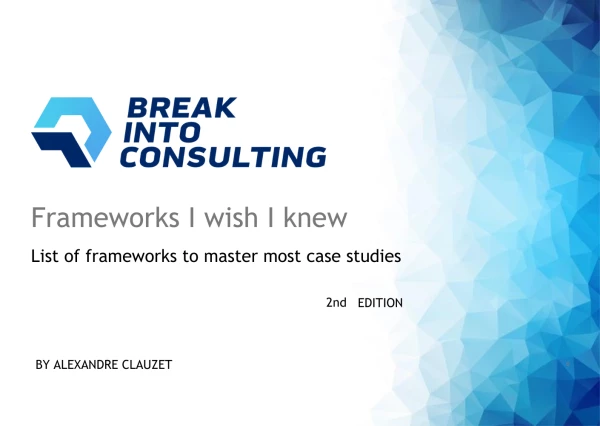I've seen so far that we should avoid asking questions which could already lead to a solution while doing the background check, before coming up with a framework to structure the case. That being said, I wonder if in a profitability case is it ok to ask for costs and revenues' segmentations for the business, prior to lay down the appropriate structure i.e. profits = revenue - costs, revenues=volume*...
I'm afraid that could be seen as an initial approach in a unstructured way (not a best practice), althoug I think it could lead to a more directioned approach for the framework.

















